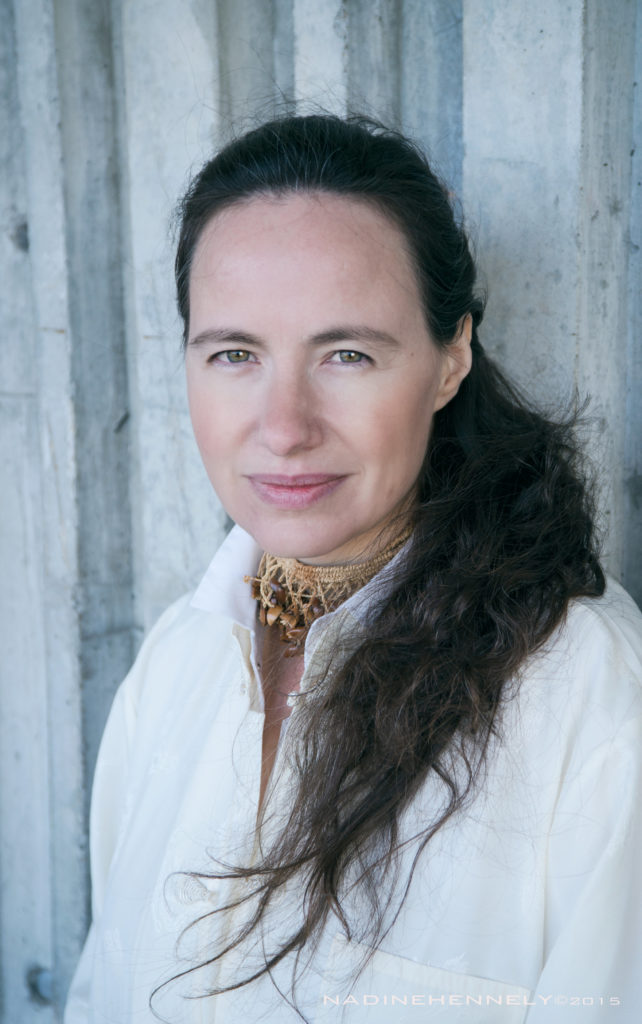
Diaphanous Grace (2020)
from the composer
Botticelli’s and von Heyl’s Primavera paintings seem to have infinite layers to reveal; each look pulls me deeper, probing for the secret of each detail and gesture. Amid stark contrasts of light, dark and color, a quixotic sense of space and depth, my focus is stretched wide across the foreground. Each iconic figure is shrouded in symbolism, yet their interaction in the scene is enigmatic. Chloris, in mid-abduction, and the three dancing Graces are all draped in translucent folds of gossamer fabric, its motion drawing our gaze into the beauty and vulnerability of their bodies. Chloris will become the spring goddess, Flora, strewing roses, and the Graces’ artless dance is unconcerned with the other figures’ pathos. Together these women, swathed in Diaphanous Grace, are the promise of transformation and new creation. Through the flowing aura of their garments we sense the delicate buds of the unknown, the possibility of an awakening that remains just out of reach. In writing this, my fifth work for unaccompanied cello for Matt Haimovitz, I wanted to begin in that place of suspended, ever-changing transparency – however that may translate into sound – and never let it fall to earth.
Diaphanous Grace was written in fall 2020, and is dedicated to the memory of Ruth Bader Ginsburg.
bio
Canadian-American composer Luna Pearl Woolf has long used her creative voice to advocate for social and political change. Particularly renowned in the field of opera, her music, praised by The New York Times for its “psychological nuances and emotional depth,” is characterized by its dramatic intention, with a penetrating focus on music’s capacity as a storytelling language.
The 2021 GRAMMY-nominated composer-portrait album, LUNA PEARL WOOLF: Fire and Flood, spans several decades of the composer’s work and grapples with such pressing issues as climate change, poverty, zealotry, racism, gender roles and plague, through music that is as is intensely emotional as it is lyrical and complex. The album, released on the PENTATONE Oxingale Series, features The Choir of Trinity Wall Street, NOVUS NY and conductor Julian Wachner, with soloists cellist Matt Haimovitz, soprano Devon Guthrie, mezzo-soprano Elise Quagliata, and Broadway actor Nancy Anderson.
Tapestry Opera premiered Woolf’s Jacqueline, about legendary cellist Jacqueline du Pré, with a libretto by Royce Vavrek, in February 2020. The production garnered five nominations and a win in Toronto’s prestigious Dora Awards. Better Gods, about Hawaii’s Queen Lili‘uokalani, was premiered by Washington National Opera. The Pillar was awarded one of Opera America’s inaugural Discovery Grants for female composers. Current
projects include The Limit of the Sun with librettist Andrea Stolowitz and City On Fire with librettist David Van Taylor.
Among Woolf’s most widely-performed works are Après moi, le déluge, written in the aftermath of Hurricane Katrina; and Angel Heart, narrated by Jeremy Irons, recently released worldwide, alongside a new German-language edition with author Cornelia Funke narrating. Other noted collaborators include Dame Evelyn Glennie, Joyce DiDonato, the Brentano String Quartet, Dennis Russell Davies and the Bruckner Orchestra, among many others.
Woolf founded the ground-breaking Oxingale Records with Haimovitz in 2000. Her music can be heard internationally on the PENTATONE Oxingale Series.
